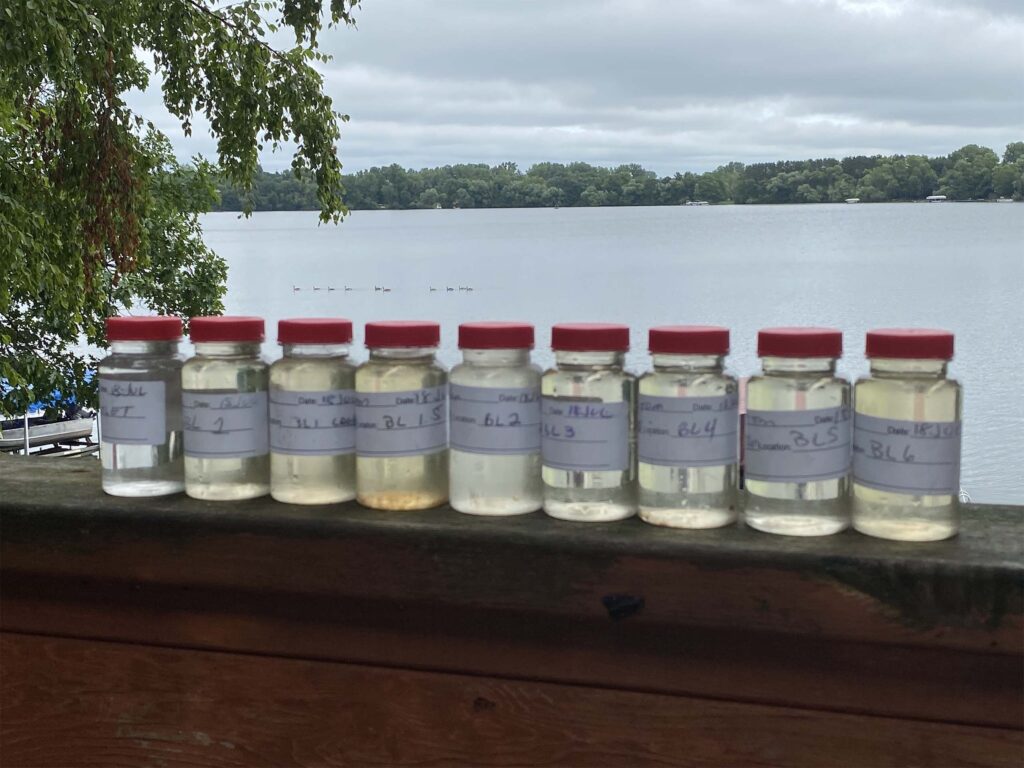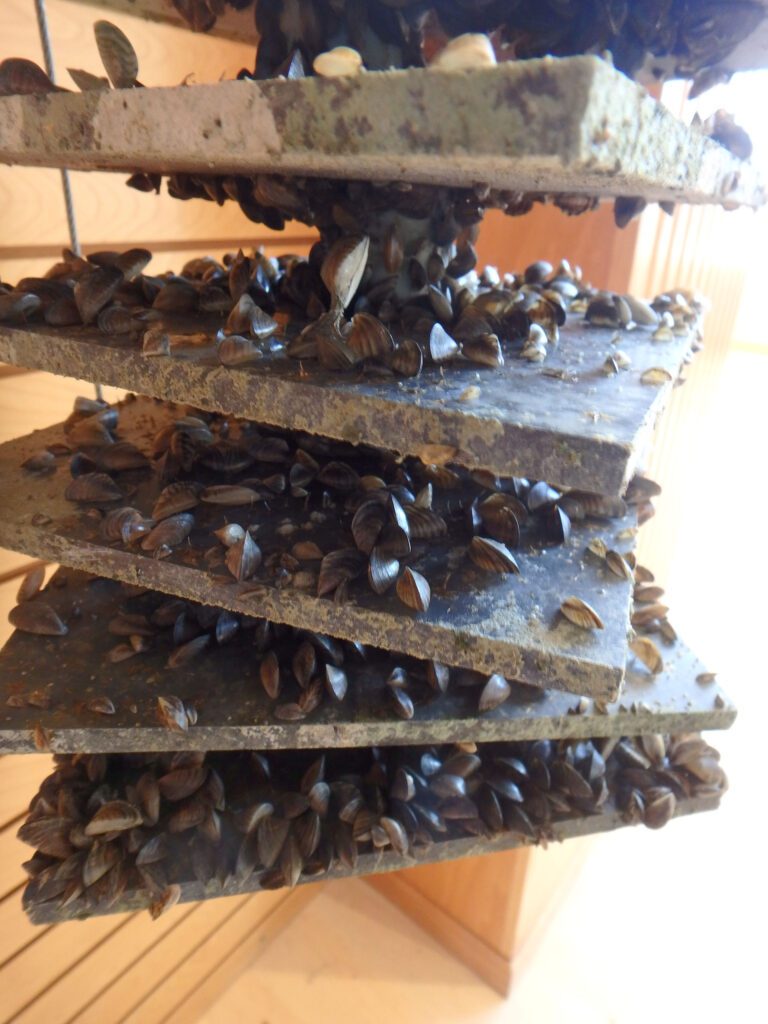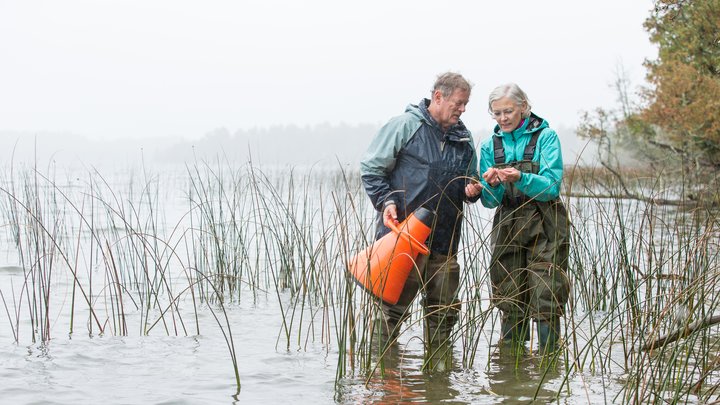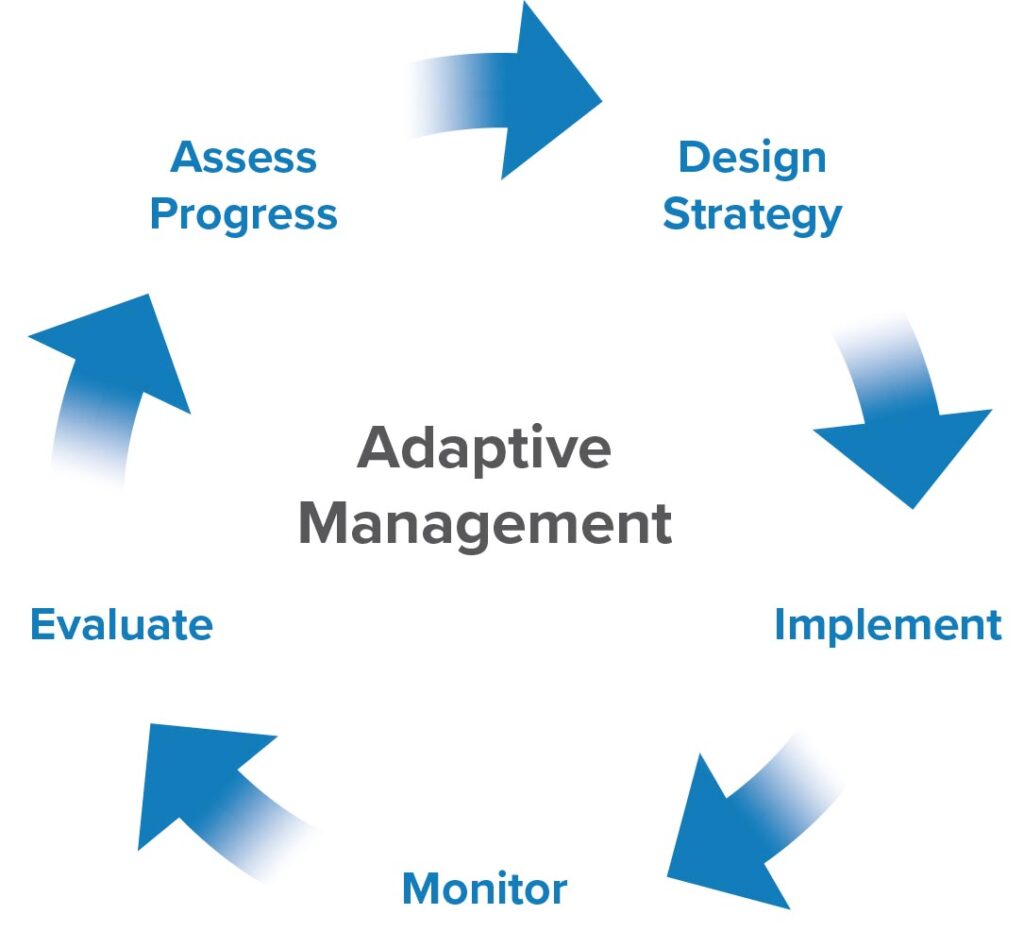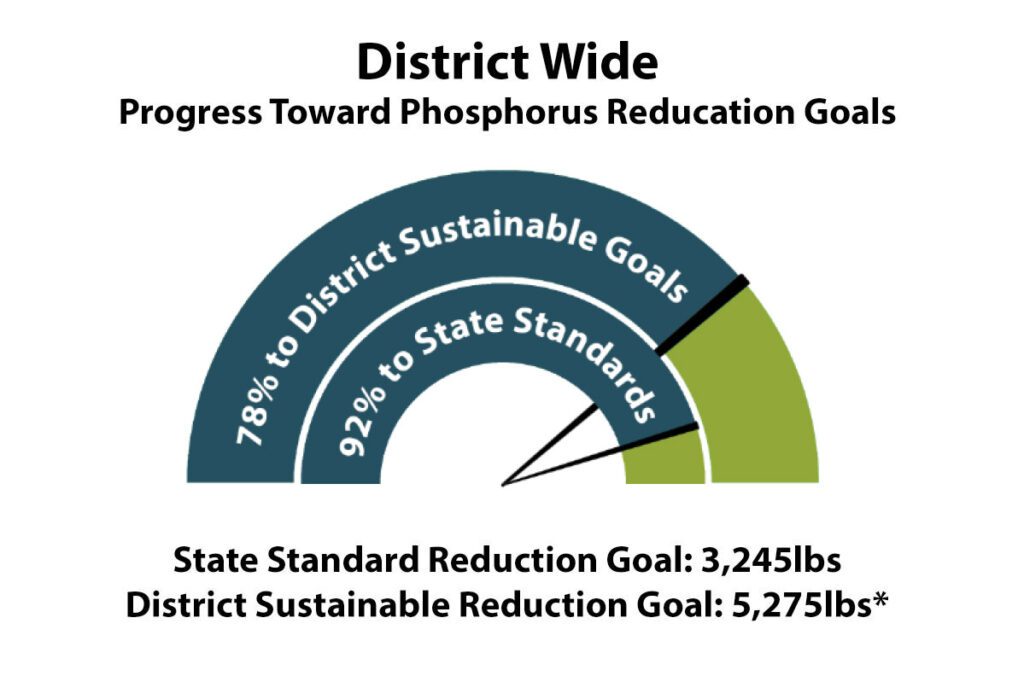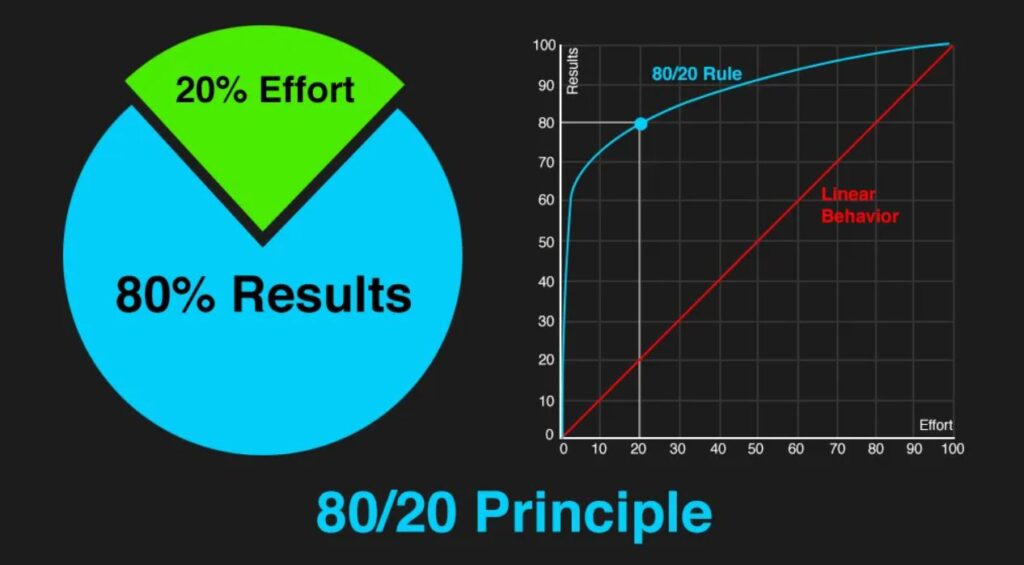Citizen science provides residents with the opportunity to get involved in the protection and management of their local resources. The CLFLWD offers a variety of citizen science opportunities within the realm of water monitoring and aquatic invasive species prevention.
Get Involved
Citizen Assisted Monitoring Program (CAMP)
Volunteers in this program monitor lake water quality by collecting water samples, taking Secchi transparencies and surface water temperature, and recording basic user perceptions and climate information. All training is provided and typically takes a couple of hours. All equipment including sampling tools and data sheets are also provided. Volunteers in this program collect samples twice a month and store them in their freezer, samples are collected from volunteers twice per season and sent into the Metropolitan Council for analysis. No prior water monitoring experience is needed.
Citizen Assisted Tributary Monitoring (CAT)
The CAT program utilizes trained volunteers to collect water samples at small and flashy drainage points surrounding selected lakes (such as streams, ditches, and culverts) and then deliver those samples to the CLFLWD for analysis using inexpensive, yet accurate, digital colorimeters. Data gathered by this program will help to identify, inform, prioritize, plan, and execute projects that improve the water quality of Forest Lake. All training is provided and typically takes no more than a few hours. All equipment including sampling tools and data sheets are also provided. It is expected that volunteers will spend approximately one hour a week collecting and processing water samples, depending on rainfall. No prior water monitoring experience is needed. Interested in volunteering or learning more? Contact Victoria D’Amico via email or call 651-313-8821.
Zebra Mussel Monitoring
The zebra mussel monitoring program allows the district to keep an eye on existing zebra mussel populations in infested lakes and provides a crucial early detection method for non-infested lakes. Volunteers pick up a sampling plate from CLFLWD after ice out, hang it from their dock for the duration of the summer, and then return the sampling plate to CLFLWD in the fall for analysis. Volunteers who have plates in lakes that are not currently infested with zebra mussels are asked to check their plate monthly so any signs of zebra mussel attachment.
Aquatic Invasive Species (AIS) Detectors
The AIS Detectors program is offered through the University of Minnesota in conjunction with the Minnesota Aquatic Invasive Species Research Center (MAISRC). The program aims to help protect Minnesota’s life at the lake by empowering community members through its volunteer programs, events, workshops, and other educational offerings. The course has three tracks: community member, AIS professional, and group workshops. The community member track is for those who are planning to volunteer as AIS Detectors and who are not conducting AIS activities professionally. Learn more https://maisrc.umn.edu/ais-detectors
Minnesota Water Stewards
Developed by Freshwater Society in 2013, the Minnesota Water Stewards program is a volunteer program designed to equip community members with the knowledge and skills needed to improve water health at the grassroots level. Stewards are certified by participating in a broad training curriculum designed by experts in the fields of hydrology, stormwater management and groundwater health, water policy, community-based social marketing, landscape assessment, and installation of clean water practices. At the end of the certification process, all Stewards complete a capstone project that improves the health of local water while involving and educating their community. Stewards then become a point of knowledge and influence in their communities.
